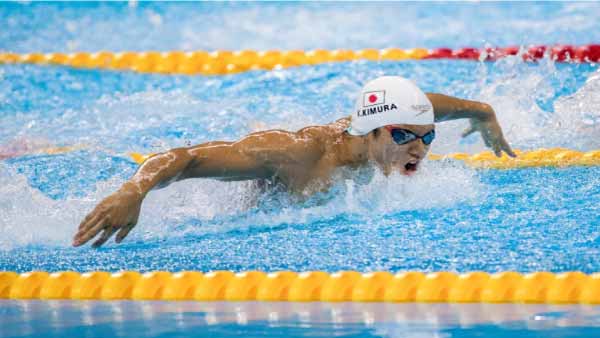Ethics in sport and the fight against corruption
Ethics in sport is of vital importance as it promotes integrity, honesty, respect and fairness in all sport-related activities. It is essential to maintain trust and respect in sport, both for athletes and fans.
Corruption in sport can take many forms, including doping, bribery, match-fixing, misuse of funds and manipulation of results. Corruption in sport is a serious problem because it not only affects the integrity of sport, but can also have legal and financial consequences.
To combat corruption in sport, it is important that sports organisations adopt clear and transparent policies and procedures to prevent and detect corruption. They should also educate athletes and staff about the importance of ethics in sport and the consequences of corruption.
In addition, close cooperation between sports organizations, government authorities and law enforcement agencies is needed to investigate and prosecute offenders. The media and civil society can also play an important role in the fight against corruption in sport by reporting on corruption cases and demanding accountability and transparency.
Ethics in sport and the fight against corruption are essential to maintaining the integrity and value of sport. All actors involved in sport, including athletes, coaches, sports organizations, government authorities, the media and civil society, have an important role to play in promoting ethics in sport and preventing corruption.
Integrity
Integrity refers to the quality of being honest, ethical, and consistent in conduct and decision-making. In the context of sport, integrity is critical to maintaining trust and credibility in sport, for both athletes and fans.
Integrity in sport involves being honest with yourself and others, playing fair, complying with the rules and regulations of the sport, and avoiding any form of cheating or unsportsmanlike behavior. Integrity also involves respecting opponents and teammates, and accepting responsibility for one’s actions.
Lack of integrity in sport can take many forms, such as doping, match-fixing, violation of the rules of the sport, harassment and discrimination. Lack of integrity can have serious consequences for the sport, including loss of fan confidence, decreased quality of play and lack of equal opportunities for athletes.
To promote integrity in sport, it is important that sports organisations adopt clear and transparent policies and procedures, and educate athletes and staff about the importance of integrity and the consequences of lack of integrity. Close cooperation between sports organizations, government authorities and law enforcement agencies is also needed to investigate and prosecute offenders.
Integrity is essential to maintaining trust and credibility in sport. All actors involved in sport, including athletes, coaches, sports organisations, government authorities and fans, have an important role to play in promoting integrity in sport.
Honesty
Honesty refers to the quality of being sincere, truthful, and fair in words and actions. In the context of sport, honesty is fundamental to maintaining integrity and fairness in all sport-related activities.
Honesty in sport involves telling the truth about one’s own performance, match results and any other aspect related to sport. Honesty also involves not cheating, playing fair, and complying with the rules and regulations of the sport. Athletes and coaches must be honest in their preparation and performance, and accept responsibility for their own actions.
Dishonesty in sport can take many forms, such as doping, bribery, match-fixing and violation of the rules of the sport. Lack of honesty can have serious consequences for the sport, including loss of fan confidence, decreased quality of play and lack of equal opportunities for athletes.
To promote honesty in sport, it is important that sports organisations adopt clear and transparent policies and procedures, and educate athletes and staff about the importance of honesty and the consequences of dishonesty. Close cooperation between sports organizations, government authorities and law enforcement agencies is also needed to investigate and prosecute offenders.
Honesty is essential to maintaining integrity and fairness in sport. All actors involved in sport, including athletes, coaches, sports organisations, government authorities and fans, have an important role to play in promoting honesty in sport.
Respect
Respect refers to the consideration, esteem and appreciation of others, as well as the recognition of the rights and dignity of each person. In the context of sport, respect is fundamental to maintaining a safe and healthy environment for athletes and to promoting equality and justice in all sport-related activities.
Respect in sport involves treating others with dignity, justice and fairness, regardless of their background, gender, religion or physical abilities. Respect also involves accepting and appreciating the diversity of others and avoiding any form of discrimination, harassment or violence. Athletes and coaches must respect their opponents, teammates, referees and officials, and work together to create a fair and respectful environment.
Disrespect in sport can take many forms, such as discrimination, harassment and violence, and can have serious consequences for the health and well-being of athletes and the integrity of sport. Disrespect can also diminish the value of sport and the quality of play, and can discourage athletes from certain groups or communities from participating.
To promote respect in sport
It is important for sports organisations to adopt clear and transparent policies and procedures, and educate athletes and staff about the importance of respect and the consequences of disrespect. Close cooperation between sports organizations, government authorities and law enforcement agencies is also needed to investigate and prosecute offenders.
Respect is essential to maintaining a safe, healthy and fair environment in sport. All actors involved in sport, including athletes, coaches, sports organisations, government authorities and fans, have an important role to play in promoting respect in sport.
Justice
Justice refers to the fairness, fairness and fair treatment of all persons in the context of law and morality. In sport, justice is fundamental to ensuring equal opportunities for all athletes and to promoting integrity and honesty in all sport-related activities.
Justice in sport implies the fair and equitable application of the rules and regulations of sport, and the protection of the rights and dignity of athletes. Justice also involves the prevention and elimination of any form of discrimination, corruption or fraud in sport. Athletes and coaches must compete with fairness and respect towards their opponents, and accept match results with dignity and sportsmanship.
Lack of fairness in sport can take many forms, such as discrimination, doping, match-fixing and violation of the rules of sport. Lack of justice can have serious consequences for the integrity of sport, and can discourage athlete participation and fan confidence.
To promote justice in sport
It is important that sports organizations adopt clear and transparent policies and procedures, and educate athletes and staff about the importance of justice and the consequences of lack of justice. Close cooperation between sports organizations, government authorities and law enforcement agencies is also needed to investigate and prosecute offenders.
Justice is essential to ensure equal opportunities and the integrity of sport. All actors involved in sport, including athletes, coaches, sports organisations, government authorities and fans, have an important role to play in promoting justice in sport.
Ethics
Ethics refers to the moral principles and values that guide human behavior and decision-making. In the context of sport, ethics are fundamental to ensure integrity, fairness and respect in all sport-related activities.
Ethics in sport involves the adoption of a responsible and conscious approach to the practice of sport, with the aim of promoting honesty, impartiality and fairness in all aspects of sport. Athletes and coaches must act with integrity, respect the rules and regulations of the sport, and work together to create a safe and healthy environment for all participants.
Lack of ethics in sport can take many forms, such as doping, corruption, discrimination and fraud. Lack of ethics can have serious consequences for the integrity of sport, and can discourage athlete participation and fan confidence.
To promote ethics in sport, it is important that sports organizations adopt clear and transparent policies and procedures, and educate athletes and staff about the importance of ethics and the consequences of lack of ethics. Close cooperation between sports organizations, government authorities and law enforcement agencies is also needed to investigate and prosecute offenders.
Ethics are essential to ensure integrity, fairness and respect in sport. All actors involved in sport, including athletes, coaches, sports organisations, government authorities and fans, have an important role to play in promoting ethics in sport.


